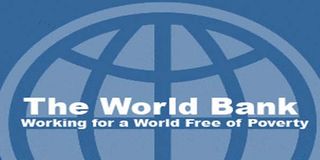World Bank: Poverty still high

What you need to know:
Based on the 2012 Household Budget Survey, the World Bank’s Tanzania Mainland Poverty Assessment released yesterday shows that poverty has declined by approximately one per cent each year between 2007 and 2012.
Dar es Salaam. Official figures show that poverty has been decreasing in the past five years, but the World Bank says the vast majority of Tanzanians still live in poverty.
Based on the 2012 Household Budget Survey, the World Bank’s Tanzania Mainland Poverty Assessment released yesterday shows that poverty has declined by approximately one per cent each year between 2007 and 2012.
Basic needs poverty, which refers to the minimum resources needed for physical wellbeing, declined from 34.4 per cent in 2006 to 28.2 per cent by 2012, while extreme poverty also decreased from 11.7 per cent to 9.7 per cent, with developments attributed to sustained economic growth during the period. The report also indicates that there were signs of pro-poor growth during the period although approximately 70 per cent of Tanzanians continued to earn less than $2 a day.
However, these improvements were experienced mainly by less well-off households whose members continue to suffer from different forms of deprivations, according to Ms Nadia Belhaj Hassine Belghith, World Bank senior economist and lead author of the report who presented the assessment summary.
“Poverty is particularly pervasive in the rural areas where around 70 per cent of the Tanzanian population lives. This is due to the fact that the economy is being driven by fast-growing sectors like financial intermediation and communication which do not create more jobs.”
She said, despite the positive changes in recent years, the number of the poor, particularly in rural areas, is still high and the welfare disparity between the geographic regions is widening.




